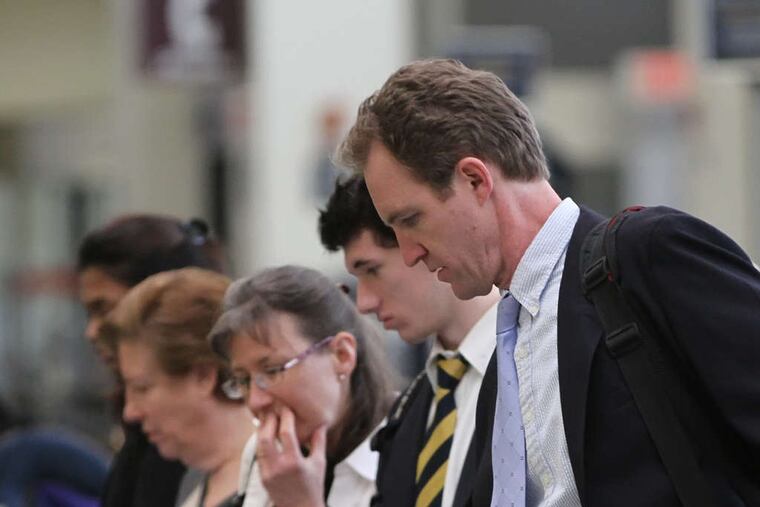Big may be good for business, but there's a cost for the region
Competition is great, right? It keeps prices low, forces businesses to innovate, and makes firms responsive to their customers. A competitive environment fosters vitality in a regional economy as well.

Competition is great, right? It keeps prices low, forces businesses to innovate, and makes firms responsive to their customers. A competitive environment fosters vitality in a regional economy as well.
So, why are so many politicians and business leaders comfortable with the concentration of market power in one very large air carrier and one huge Internet and cable provider?
Economists always argue that the more firms there are in the market, the better it is for consumers. But while businesspeople say that competition is great, they would prefer to be a monopoly. Competition may bring out the creative juices, but it also creates major risks: Pricing power is limited, and if management doesn't quickly adjust to the many changes in their markets, a firm could quickly fail.
Unfortunately, the Philadelphia region is facing the prospect that with the merger of US Airways and American Airlines, there will be limited competition in air travel. Competition is limited as well in television and Internet connectivity, which is dominated here by Comcast Corp.
It is hard to see how those conditions could be good for the region.
When you look into the future, transportation and connectivity are two factors that could separate winners from losers in the global economic battle. We can only imagine what the future mobile world will look like, but we know that people will be on the move and in touch at the same time. A competitively priced and efficient transportation network coupled with low-cost and universally accessible connectivity will be critical to economic growth.
For decades, Philadelphia has had relatively minimal competition in air travel. That is likely to shrink further as the US Airways and American Airlines merger leaves the region with even more limited airline competition. We have seen the impact on prices whenever a competitor has abandoned a route, as Southwest Airlines did as it regards flights between Philadelphia and Boston. When Southwest abandoned the route, it left US Airways as the sole provider: Prices soared.
There is every reason to expect price increases, often very large increases, on routes where competition will decline. Airlines use what economists call price discrimination. Basically, you charge what the market will bear in those markets where you can control prices - that is, where competition is limited. That profit-maximizing approach makes total sense for the company but means high costs for customers.
US Airways management has argued that there will be improved service from the combined airlines, which will be called American Airlines Group Inc., but that is not the same as saying prices will not rise. For businesses and households that worry about travel costs, increasing fares could outweigh the benefits from the new American Airlines network. And when it comes to attracting businesses, the case has yet to be made that firms will be more willing to locate to a higher-cost but more accessible location.
Next there is the issue of customer service. It is not as if monopolies are known for their quality of service or product. I can speak from personal experience about a problem with US Airways. Although the office of Rep. Michael Fitzpatrick (R., Pa.) intervened and contacted US Airways about the issue, the airline failed to respond. If a congressman could not get an explanation from US Airways, what chance will an average consumer stand?
What is true for air travel is also the case with Internet connectivity. Comcast's masterful strategy of clustering markets has allowed it to build a regional market share well in excess of 60 percent. In some areas where Verizon has not built out its system, the share is even greater.
Market share matters. Like any good company with market dominance, Comcast offers many "deals," but they are based on location. Once it knows which market you are in, it can price accordingly. The likely result: Areas with little competition pay more.
Monopolists (technically oligopolists - "one of a few") like Comcast argue that their size allows them to invest in new and better products. But it could also lead to bringing products to market too soon. Think of Microsoft's Vista operating system or Comcast's new X1 platform. Vista was not ready for prime time, and it appears the X1 platform has had some problems as well. My discussions with a Comcast representative ended with her telling me the company was aware of the issues and was doing all it could to correct them. Like Microsoft, it still charged a premium price for an unfinished product.
What does this mean for the Philadelphia region's economy? Transportation and communications expenses affect the cost of living and doing business. When there is limited competition, those costs will often be higher than in regions with multiple options. That would reduce the region's competitiveness, something everyone should be concerned about.